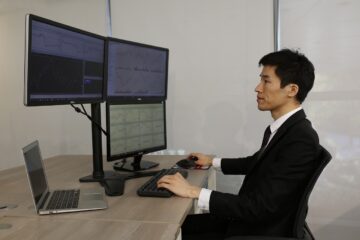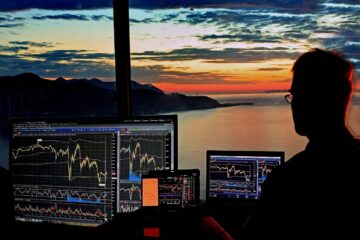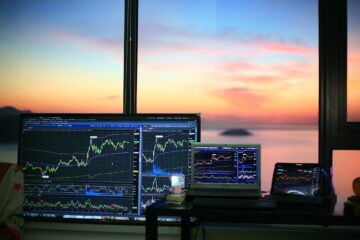Forex trading involves several key participants, each playing a distinct role in the financial ecosystem. Below are the definitions of a trader, broker, and market in Forex trading.
Who is a Trader?
A trader is an individual or institution that buys and sells currencies in the Forex market to make a profit. Traders analyze price movements and use different strategies to take advantage of market fluctuations.
Types of Forex Traders:
🔹 Retail Traders – Individual traders using online platforms to speculate on currency movements.
🔹 Institutional Traders – Banks, hedge funds, and financial firms trading large volumes.
🔹 Day Traders – Open and close trades within a single day.
🔹 Swing Traders – Hold positions for several days to capture medium-term trends.
🔹 Scalpers – Make multiple quick trades within minutes to gain small profits.
Who is a Broker?
A broker is an intermediary that provides traders with access to the Forex market. Brokers offer trading platforms, leverage, and liquidity by connecting traders to larger financial institutions or liquidity providers.
Types of Forex Brokers:
🔸 Market Makers – Set their own bid/ask prices and act as counterparties to traders.
🔸 ECN Brokers (Electronic Communication Network) – Connect traders directly to liquidity providers without dealing desk intervention.
🔸 STP Brokers (Straight Through Processing) – Route orders directly to liquidity providers without manual interference.
Services Provided by Brokers:
✅ Trading Platforms (MT4, MT5, cTrader, WebTrader)
✅ Leverage & Margin Trading
✅ Market Execution & Order Processing
✅ Customer Support & Educational Resources
What is the Forex Market?
The Forex market is a decentralized global marketplace where currencies are traded 24/5. It operates electronically over-the-counter (OTC) without a central exchange.
Key Features of the Forex Market:
📌 Decentralized – No single physical location; operates via a global network of banks, brokers, and financial institutions.
📌 Highly Liquid – Over $7 trillion traded daily, making it the largest financial market.
📌 24-Hour Trading – Divided into major trading sessions: Asian (Tokyo), European (London), and American (New York).
📌 Leverage & Volatility – Allows traders to control large positions with smaller capital but comes with higher risk.
Major Participants in the Forex Market:
🏦 Central Banks – Control monetary policy and influence exchange rates.
🏛️ Commercial Banks – Facilitate large transactions for corporations and governments.
📈 Retail & Institutional Traders – Individuals and firms speculating on price movements.
📊 Liquidity Providers – Ensure smooth execution of trades by supplying bid/ask prices.
Conclusion
- A trader is an individual or institution that participates in the Forex market to buy and sell currencies for profit.
- A broker acts as an intermediary, providing traders with access to the Forex market and liquidity.
- The market is a global, decentralized network where Forex trading takes place 24 hours a day, five days a week.


